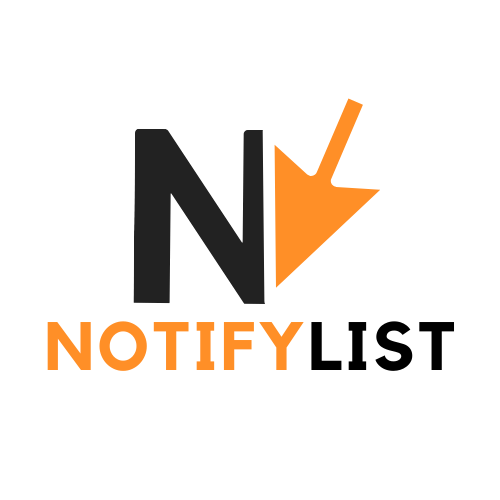In today’s competitive landscape, simply adopting a B2B CRM is no longer sufficient to ensure sustained growth and efficiency. The true competitive edge lies in harnessing the power of advanced workflow automation to transform your sales operations from reactive to proactive, ensuring that every lead is nurtured, every opportunity is maximised, and every team member operates at peak performance. By strategically automating critical touchpoints and decision pathways within your CRM, businesses can unlock significant improvements in productivity, forecast accuracy, and ultimately, revenue generation.
Strategic workflow automation: transforming lead qualification and routing
The foundation of any successful sales operation is the ability to identify and prioritise prospects who are most likely to convert. Traditional manual methods of lead assessment are not only time-consuming but also prone to inconsistencies and human error. By implementing sophisticated workflow automation techniques, organisations can ensure that every incoming lead is evaluated objectively and routed to the most appropriate sales professional without delay. This shift from manual triage to intelligent automation dramatically accelerates the speed at which prospects move through the initial stages of the sales funnel, reducing the risk of missed opportunities and ensuring that high-value accounts receive immediate attention.
Intelligent lead scoring frameworks for prioritising high-value prospects
At the heart of effective lead management is a robust scoring system that evaluates prospects based on a combination of demographic, firmographic, and behavioural data. Advanced CRM platforms enable businesses to configure automated scoring models that assign numerical values to various attributes, such as company size, industry sector, website interactions, email engagement, and content downloads. By leveraging machine learning algorithms, these systems can continuously refine their scoring criteria based on historical conversion data, ensuring that the framework evolves in tandem with changing market dynamics. Sales teams equipped with accurate lead scores can focus their efforts on prospects that exhibit the strongest buying signals, resulting in higher conversion rates and more efficient use of resources. Moreover, integrating predictive analytics into your lead scoring framework allows you to forecast which prospects are most likely to progress to the next stage, enabling sales leaders to allocate coaching and support where it will have the greatest impact.
Automated Territory Assignment and Distribution Rules for Sales Teams
Once a lead has been scored and deemed worthy of pursuit, the next critical step is ensuring it reaches the right salesperson. Manual assignment processes are fraught with delays, inequities, and the potential for leads to fall through the cracks. Automated territory assignment rules within your CRM can be configured to distribute leads based on a variety of parameters, including geographic location, industry expertise, account size, or current workload. By establishing clear and transparent distribution logic, organisations can eliminate bottlenecks, ensure fair allocation of opportunities, and maintain accountability across the sales team. Advanced systems can even incorporate round-robin assignment, weighted distribution based on performance metrics, or escalation protocols for high-priority accounts. This level of automation not only accelerates response times but also fosters a culture of trust and transparency, as every team member understands the criteria governing lead allocation.
Advanced sales pipeline automation: accelerating deal progression
The journey from initial contact to closed deal is rarely linear, often involving multiple touchpoints, stakeholder interactions, and decision gates. Without automation, sales professionals can become bogged down in administrative tasks, losing valuable time that could be spent on relationship building and strategic engagement. By automating key activities within the sales pipeline, organisations can ensure that deals progress smoothly and consistently, with every necessary action triggered at the optimal moment. This approach not only reduces the cognitive load on sales teams but also minimises the risk of deals stalling due to forgotten follow-ups or missed milestones.
Trigger-Based Task Creation and Follow-Up Sequences for Consistent Engagement
One of the most powerful applications of workflow automation is the ability to trigger tasks and follow-up activities based on specific events or behaviours within your CRM. For instance, when a prospect downloads a whitepaper or attends a webinar, the system can automatically schedule a follow-up call or email, ensuring that the sales team capitalises on the prospect’s demonstrated interest. Similarly, if a deal remains in a particular stage for longer than a predefined threshold, the CRM can generate an alert or task prompting the salesperson to re-engage or escalate the opportunity. By establishing comprehensive trigger-based workflows, businesses can maintain consistent and timely communication with prospects throughout the sales cycle, significantly reducing the risk of deals going cold. This level of automation also frees sales professionals to focus on high-value activities such as strategic planning, objection handling, and stakeholder mapping, rather than being consumed by routine administrative tasks.
Stage Progression Automation with Conditional Logic and Validation Rules
Advancing a deal from one stage to the next should be contingent upon the completion of specific criteria, ensuring that opportunities only progress when they meet the necessary qualifications. Conditional logic and validation rules embedded within your CRM can automate stage transitions, preventing premature advancement and ensuring that each deal is handled with the appropriate level of rigour. For example, a deal might only be allowed to move from the discovery stage to the proposal stage once certain qualifying information has been captured, such as budget confirmation, identification of key decision-makers, or agreement on project timelines. By enforcing these rules automatically, organisations can maintain data integrity, improve forecast accuracy, and reduce the likelihood of deals stalling in later stages due to incomplete groundwork. This approach also provides sales leaders with greater visibility into pipeline health, as they can be confident that deals at each stage have met the requisite standards, enabling more accurate revenue projections and resource planning.
Sophisticated communication workflows: personalising stakeholder engagement
 In the realm of B2B sales, where purchasing decisions often involve multiple stakeholders and extended evaluation periods, the ability to deliver personalised and relevant communication is paramount. Generic, one-size-fits-all messaging is unlikely to resonate with the diverse needs and priorities of different decision-makers within an account. Advanced workflow automation enables organisations to orchestrate sophisticated multi-touch engagement sequences that adapt dynamically based on recipient behaviour, account characteristics, and engagement history. By leveraging the rich data stored within your CRM, you can ensure that every communication is timely, contextually relevant, and tailored to the unique circumstances of each prospect.
In the realm of B2B sales, where purchasing decisions often involve multiple stakeholders and extended evaluation periods, the ability to deliver personalised and relevant communication is paramount. Generic, one-size-fits-all messaging is unlikely to resonate with the diverse needs and priorities of different decision-makers within an account. Advanced workflow automation enables organisations to orchestrate sophisticated multi-touch engagement sequences that adapt dynamically based on recipient behaviour, account characteristics, and engagement history. By leveraging the rich data stored within your CRM, you can ensure that every communication is timely, contextually relevant, and tailored to the unique circumstances of each prospect.
Multi-touch cadence automation across email, sms and social platforms
Effective prospect engagement requires a coordinated approach that spans multiple channels and touchpoints over time. Automated cadence workflows allow sales teams to design and deploy sequences that combine email, SMS, social media outreach, and even direct mail, ensuring that prospects receive consistent messaging regardless of their preferred communication channel. These sequences can be configured to adapt based on recipient interactions, such as pausing the cadence if a prospect responds, or escalating to a phone call if a certain number of emails go unopened. By automating these complex workflows, organisations can maintain a steady drumbeat of engagement without overwhelming sales teams or prospects, while also ensuring that no opportunity is neglected due to oversight or resource constraints. Moreover, the ability to A/B test different messaging strategies within automated cadences provides valuable insights into which approaches resonate most effectively, enabling continuous refinement and optimisation of outreach efforts.
Dynamic Content Personalisation Based on Account Behaviour and Firmographics
The most effective communication is that which speaks directly to the recipient’s specific needs, challenges, and context. Dynamic content personalisation leverages the wealth of data available within your CRM to tailor messaging at a granular level, incorporating information such as industry sector, company size, recent account activity, and previous engagement history. For instance, an automated email sent to a prospect in the healthcare sector might highlight case studies and use cases relevant to that industry, while a message directed to a prospect in manufacturing would emphasise entirely different benefits and applications. Advanced CRM platforms can also personalise content based on behavioural signals, such as which pages a prospect has visited on your website or which product features they have enquired about. This level of personalisation not only increases the likelihood of engagement but also demonstrates a deep understanding of the prospect’s unique situation, fostering trust and credibility. By automating the delivery of dynamically personalised content, organisations can scale their outreach efforts without sacrificing the quality and relevance of their communications.
Data-driven workflow optimisation: analytics and continuous improvement
The implementation of advanced workflow automation is not a one-time project but rather an ongoing process of measurement, analysis, and refinement. To truly maximise the return on investment from your CRM, it is essential to establish robust analytics frameworks that provide visibility into workflow performance, identify areas for improvement, and support data-driven decision-making. By continuously monitoring key metrics and conducting systematic experiments, organisations can ensure that their automation strategies remain aligned with evolving business objectives and market conditions.
Performance monitoring dashboards for workflow effectiveness measurement
The ability to track and visualise the performance of your automated workflows is critical to understanding their impact and identifying opportunities for optimisation. Customisable dashboards within your CRM can aggregate data from multiple sources, providing real-time insights into metrics such as lead response times, conversion rates at each stage of the funnel, email open and click-through rates, and the average duration of sales cycles. By monitoring these indicators, sales leaders can quickly identify bottlenecks, underperforming sequences, or stages where deals are stalling, enabling them to take corrective action before these issues materially impact revenue. Advanced analytics platforms can also provide trend analysis, highlighting changes in performance over time and correlating workflow adjustments with observed outcomes. This level of visibility empowers organisations to adopt a proactive stance, continuously fine-tuning their automation strategies to maximise efficiency and effectiveness.
A/b testing automation sequences to refine conversion pathways
Even the most carefully designed workflows can benefit from systematic experimentation and iteration. A/B testing, in which different variations of a workflow or message are deployed to comparable segments of your audience, provides a rigorous method for determining which approaches yield the best results. For example, you might test two different subject lines for an automated email sequence, two different cadence timings, or two different calls to action within a follow-up message. By analysing the conversion rates and engagement metrics associated with each variant, you can identify the most effective strategies and roll them out across your entire operation. Advanced CRM platforms facilitate this process by automating the deployment of test variants, tracking results in real time, and even automatically promoting the winning variant once statistical significance is achieved. This commitment to continuous experimentation and evidence-based optimisation ensures that your workflow automation strategies remain at the cutting edge, consistently delivering superior outcomes for your sales organisation.


